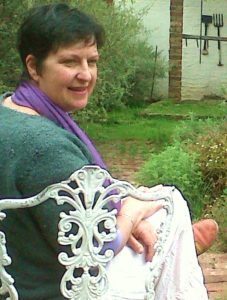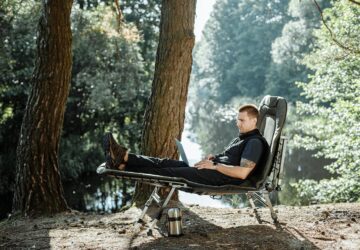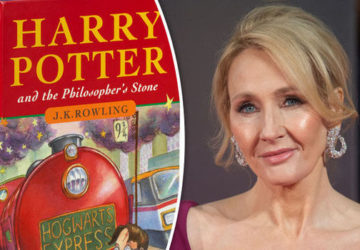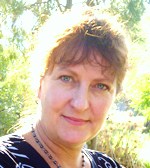Journalist, author of several books, and magazine journalism tutor at SA Writers’ College, Tracey Hawthorne tells us about her work as a writer.
Q. How did you become a writer?
I’ve always loved books and reading, and as an extension of that, I’ve also always loved writing. I don’t think I ‘became’ a writer; I think I always was a writer – although obviously, with time and experience, I’ve become a better writer. I still learn new things about writing every day, though.
Q: What has been your greatest writing achievement?
Writing swimmer Natalie du Toit’s biography, Tumble Turn, in 2006. I was initially told I would be living with her for several months during the research period, but subsequently discovered that she would be out of the country, swimming in various international competitions, for most of that time. The deadline wasn’t movable, so I just had to make a plan. I conducted a series of 12 interviews with her over three months.
She was only 22 at the time, quite shy and not terribly forthcoming. I was seriously worried about being able to write 60 000 words about such a youngster but fortunately her story was so inspirational that I managed – although I can’t say this was one of those books that ‘wrote itself’!
Q: You’ve interviewed many people over the course of your career. Which interviews stood out for you the most, and why?
• Dr Chris Barnard, for a photo-essay on the afterlife in American Life magazine in the early 1990s. Although he was in his late 60s, his new wife, model Karin Setzkorn, who hovered around while I was conducting the interview at their home in Rondebosch, Cape Town, happened to be my age – in her late 20s. I could barely concentrate on what the good doctor was saying, so fascinated was I by the contrast between his (to my mind) ancient wizenedness and her fresh young looks. They divorced in 2000; Barnard told Time magazine in 2001, ‘Loutjie [his first wife] married me because she loved me, my second wife married me because of my fame and my third because of my fame and money.’ So perhaps that explained it! (I never saw the published version of the article – this was well before the age of email – but I was well paid for it.)
• Model Iman, for a piece for Fairlady in the early 2000s. I found a phone number for her New York office on a website and, on the off-chance she’d be there, phoned it. She wasn’t in, but an assistant took my number and told me she’d phone me back. To my gobsmacked surprise, she did. My 11-year-old daughter answered the phone and said, ‘Mommy can’t come to the phone right now because she’s on the toilet’ – which I was! Iman, who’d just given birth to her second child, found this very funny. She was great to talk to – intelligent and open.
Q. How do you decide what to write about? Where do you find ideas/inspiration?

Q. How easy is it to make a living as a writer?
Not easy at all, as a freelancer. If I didn’t wear several editorial hats, including editing, subediting and proofreading, lecturing and tutoring, I wouldn’t be able to make ends meet. What it comes down to, for me, is that I love writing. I’d rather have a job that I have to supplement in other ways but for which I have a real passion, than earn a comfortable salary doing work I don’t particularly like or believe in.
What it comes down to, for me, is that I love writing. I’d rather have a job that I have to supplement in other ways but for which I have a real passion, than earn a comfortable salary doing work I don’t particularly like or believe in.”
Q: When is your best writing time?
My father was a freelance journalist who would wake up very early in the morning, make himself a cup of tea, and get a few hours of work done before the rest of the world had even opened its eyes. I now do the same – I get more quality writing work done before 9am than I do for the rest of the day.
Q. What general advice would you give aspirant writers just starting out?
The same as most writers would give newbies – read, read, read and write, write, write. And pay attention to detail – if your spelling, grammar and/or punctuation are weak, do something about it. They are a writer’s building blocks.
Q: When you mark your students’ writing, what are key qualities you look for in their work?
An understanding of what’s expected of them, which reveals that they’ve carefully read the course notes and absorbed the information; good, interesting and interested energy; and evidence that they’ve taken time and care to put together their piece.
About her work at The Writers’ College
Tracey tutors the Magazine Journalism Course at SA Writers’ College. Read great student feedback about Tracey below.
“It was a pleasure to have Tracey Hawthorne as my tutor. She gave me very constructive criticism and insightful ideas, and modules were always marked in one day. One of the last modules was tough and unexpected but so interesting and important for journalism today. From signing up to completion, everything at the Writers’ College runs smoothly and efficiently. I will certainly recommend the College to anyone wishing to write from the comfort of their home.” Carol Foonk, Magazine Journalism
“It was overall a great learning experience; there were so many new things I was taught. Tracey walked every step of the way with me. She shared so much of her knowledge and wisdom that I got to learn as much, if not more, from her as from the notes. I think The Writers’ College have a winning formula. I thought of the college as a friend that was there for me every step of the way. The course was worth every cent! Thank you.” Ferdie du Toit, Magazine Journalism
I expected a basic course that would serve more as an introduction to Magazine Journalism, but I was pleasantly surprised to find that the course offered much more than that. It all depends on how much you are willing to put in! Tracey deserves a huge thank you. Her feedback was always straight-forward and frank, but never too critical. Her approach gave me the confidence to submit my assignments with knowledge that I could rely on her objective feedback to improve my work. She responded very promptly to my submissions and provided me with valuable information whenever I asked for it. She is definitely a natural tutor. I always wondered whether I really had the ability to write anything decent; The Writers’ College and my tutor taught me and showed me that I did. I recommend this course to anyone who wants to venture into the field of Magazine Journalism.” Christine Vorster, Magazine Journalism
“Tracey was supportive, encouraging, gave useful critique and did all she could to keep me moving through the modules.” Christine Briston, Magazine Journalism Course
“I found Tracey an inspiration and her critical analysis of my work was always prompt, professional and relevant. Her guidance and support was unfaltering. I am most impressed with the course contents and the professionalism displayed by [my tutor] and the college. I feel I have made a worthwhile journey and look forward to the next stage.” Beth Stols, Magazine Journalism
“Tracey, I would like to thank you sincerely for being such an outstanding tutor. I very much liked and appreciated your approach in commenting on my assignments. In general I found your advice very relevant, professional and representative of your considerable skills and experience. I can highly recommend you to any students who want to do the magazine journalism course with SAWC. And you certainly know how to work with an adult student like me who has a mind of her own! You made this course a most enjoyable experience for me. I wish you all the best with your future endeavours (SAWC and other)!” Madi Hanekom, Magazine Journalism Course
“I just have to say that I loved doing this short course on magazine journalism. My tutor Tracey was so willing to help out, and always gave honest and fair advice – which is just what I wanted. I have learnt so much and have already advised others to go onto your website and start their dreams of writing!” Gwyneth King, Magazine Journalism
“I thoroughly enjoyed the Magazine Journalism Course. Tracey was a fantastic lecturer. Her feedback was sent the following day after I submitted my work and she was always very approachable and full of encouragement.” Ariella Caira, Magazine Journalism













